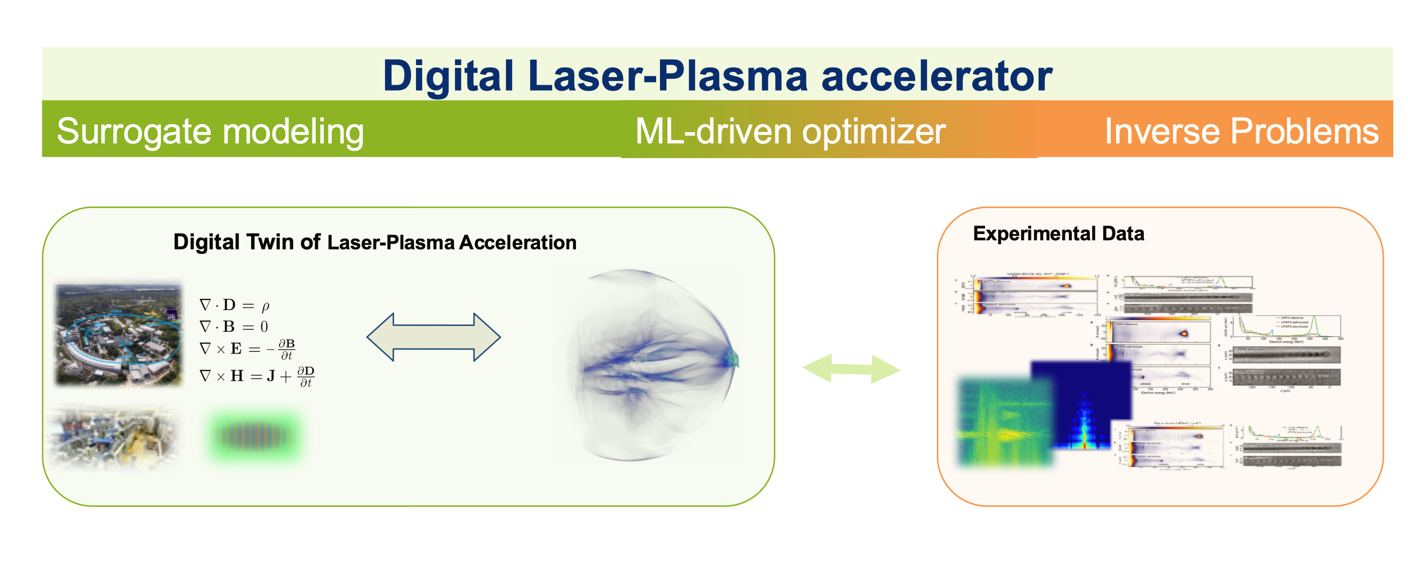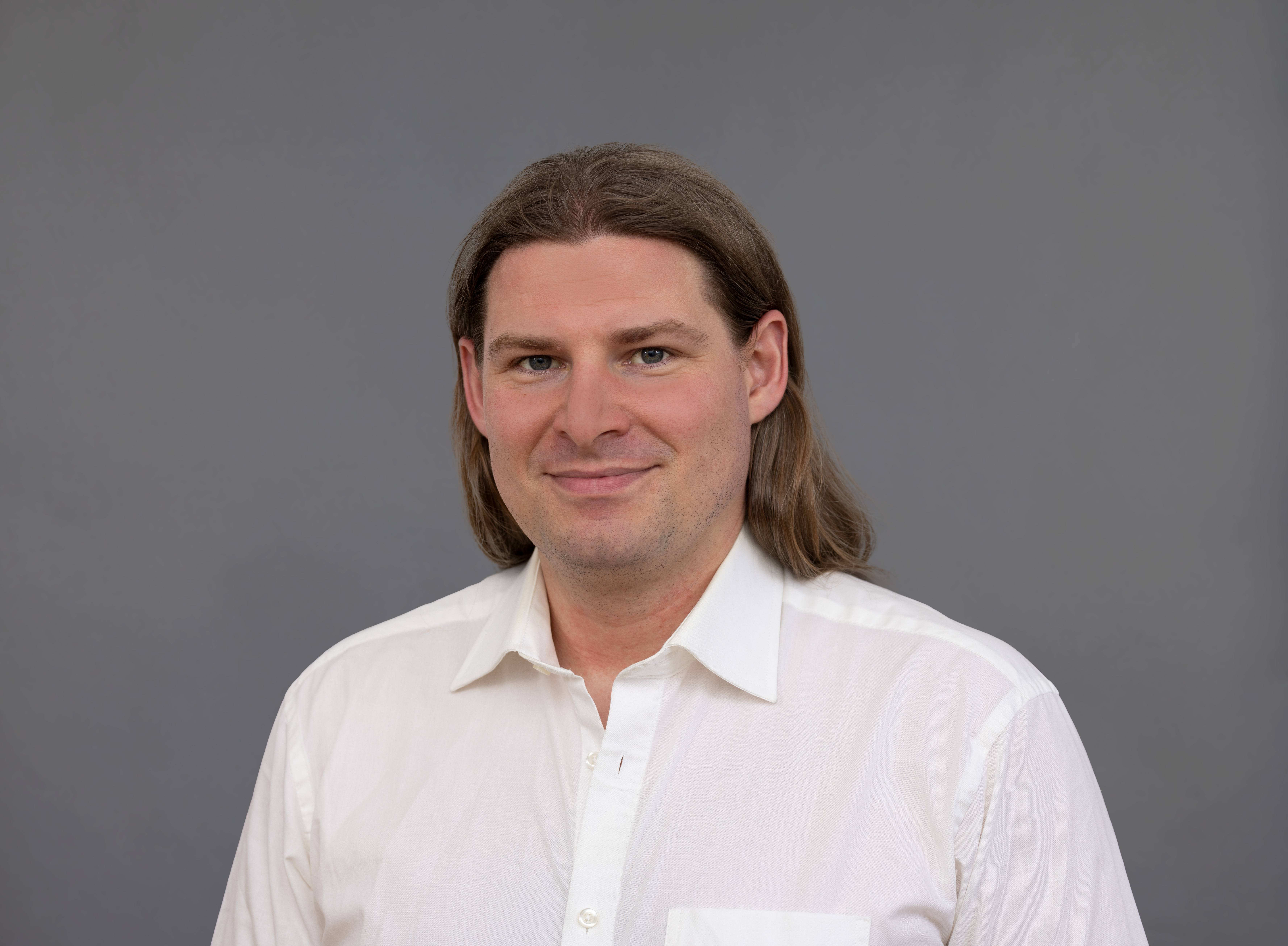
Laser-plasma accelerators make large, conventional particle accelerators more compact, less costly, as well as increase broad availability and access in science, industry and medicine. However, comprehension of the involved physics requires sophisticated and computationally demanding algorithms for simulation and reconstruction. The Helmholtz AI young investigator group aims to close the loop between theory and experiment by researching data-driven digital twinning techniques that stimulate theoretical comprehension as well as experimental validation of the very complex dynamics involved in laser-particle acceleration.
Research focus
Our declared goal is to research digital twins of future Laser-driven particle accelerators which comprises of surrogate modeling, uncertainty quantification / outlier detection as well as solution of inverse imaging problems for fast understanding of experimental data.
We therefore research recent surrogate modelling techniques such as Physics-informed Neural Networks for acceleration of state-of-the-art Particle-In-Cell simulations (PIConGPU) and identification of unmodelled dynamics from data (PDE identification & learning). Those dynamics are experimentally observed, e.g. X-ray diffraction experiments, by reconstruction of diffraction data by reliable neural networks. The latter revolutionize the way scattering experiments are carried out by fast and reliable data analysis leveraging large amounts of training data and injection of prior knowledge into the inference procedure of neural networks.
Team
Dr. Ritz-Ann Aguilar is researching generative models for inversion of Electron and Proton-Beam diagnostics at HZDR as well as X-ray diffraction patterns (e.g. Holography, SAXS) acquired at EuropeanXFEL together with experimentalists, computational physicists and data scientists within the Smart Phase and VIPR projects.
Dr. Vedhas Sadanand Pandit is investigating representation-learning approaches for both detector and simulation data to provide foundation models for more effective training of models for down-stream tasks which solve inverse problems at laser-particle accelerator experiments and drive parameter-space exploration in simulations thorugh surrogate models.
Jeyhun Rustamov is leading our development of INN architectures within the VIPR project.
Fong-Lin Wu is researching methods for fast reconstruction partcile bunch shapes resulting from laser-plasma acccelerators with an emphasis on integrating information from multiple measuremnt modalities and quatification of remaining uncertainties .
Jiaying Wang is developing methods to shape and stabilize high-power laser pulses within the THRILL project to improve the reproducibility of future experiments with laser-plasma acceleration and in high-energy physics. This involves predicting and correcting laser states using surogate models and reinforcment learning to finely tune non-linear processes to control beam phase and shape.
Adjunct Members
Dr. Ankush Checkervarty is heading our efforts to develop virtual beam diagnostics, within the ROCK-IT project, to improve understanding and control of non-linear components in particle beam lines.
Former Members
Nico Hoffmann was heading our Helmholtz AI young investigator’s group AI for Future Photon Sciences until 2023.
